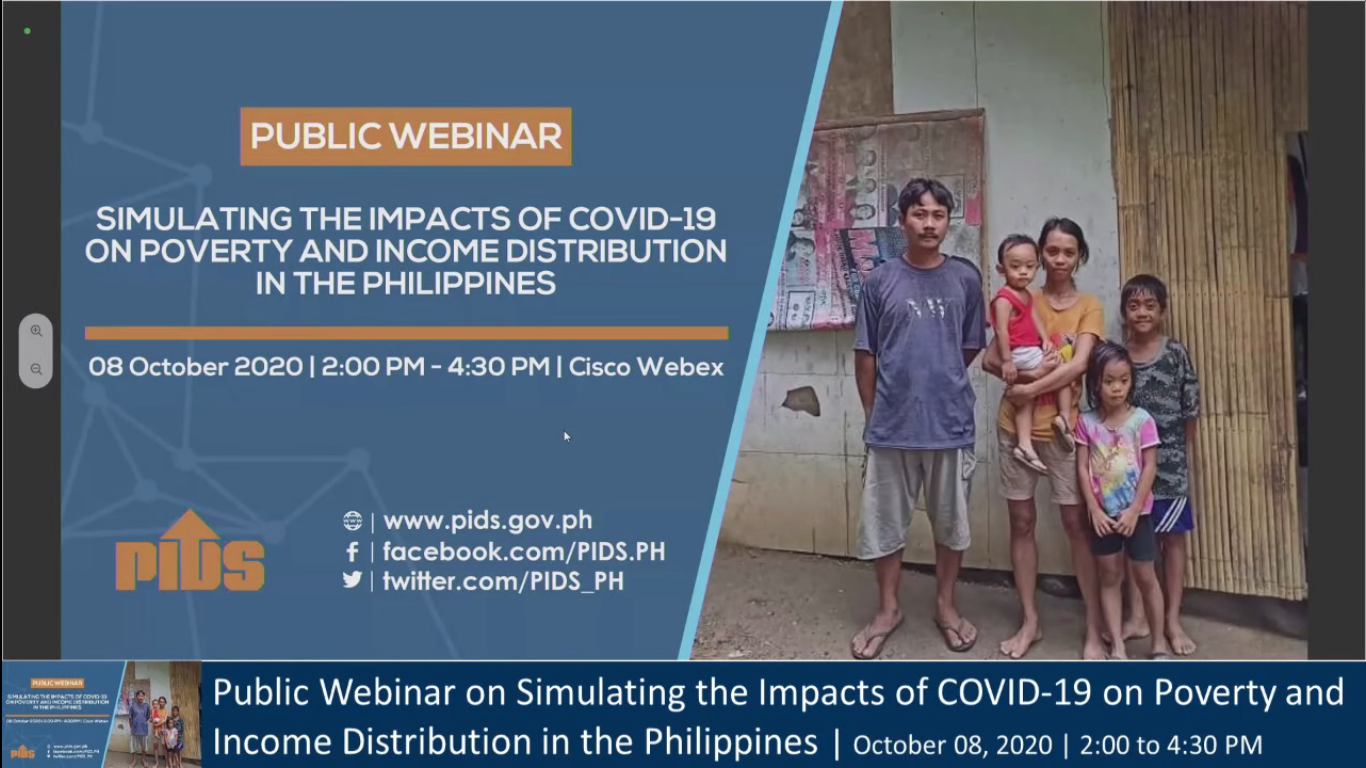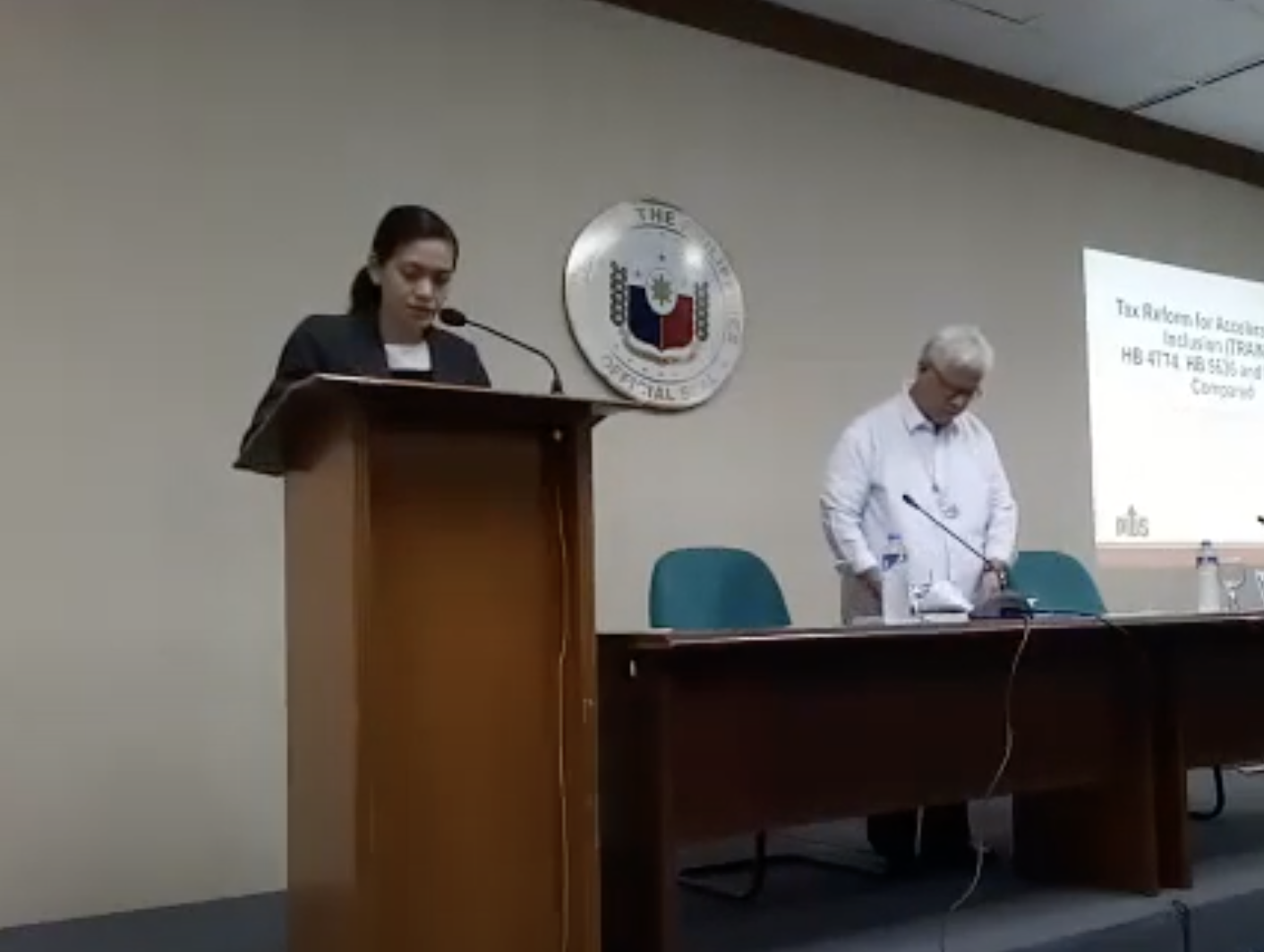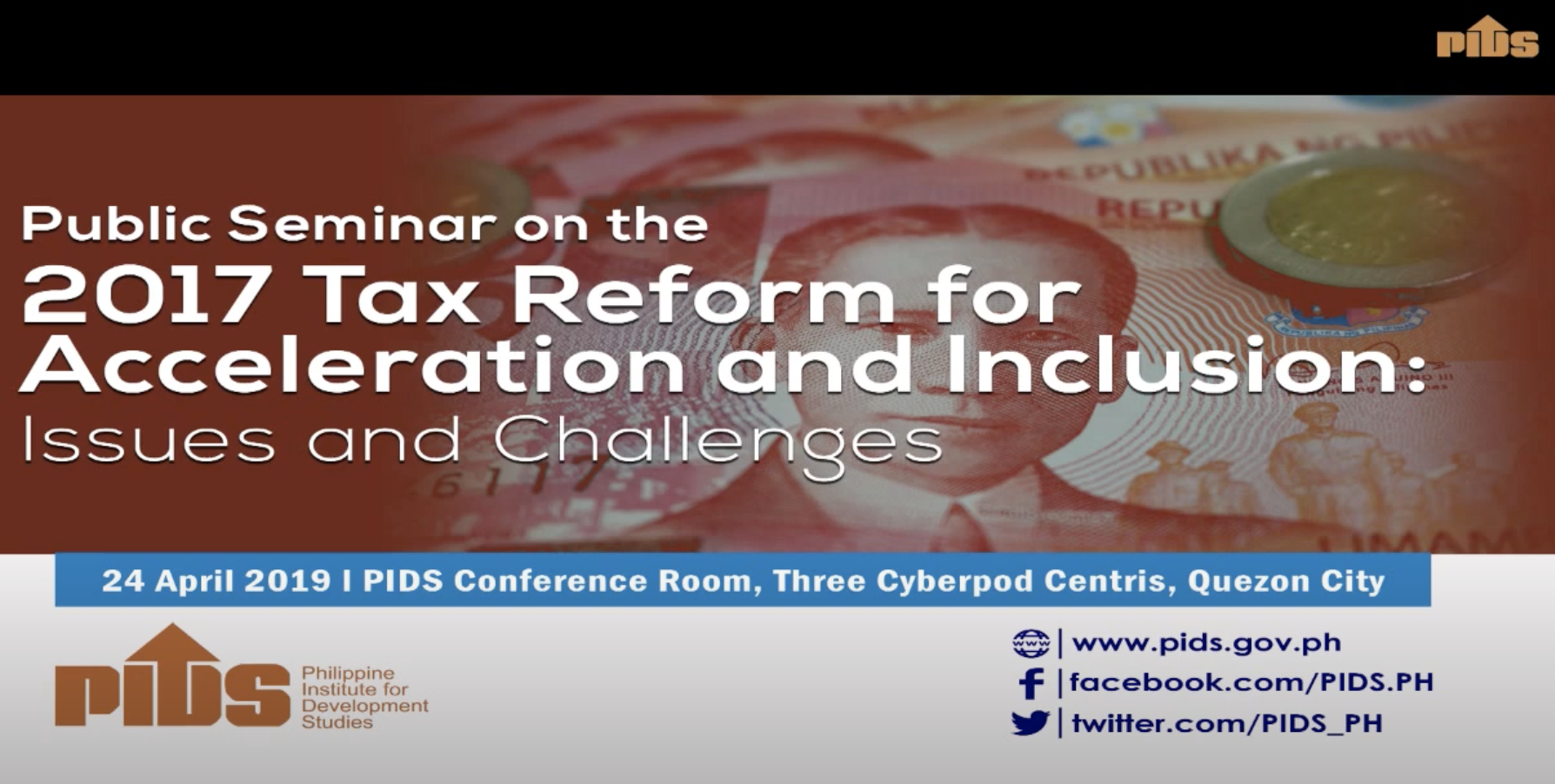Think tank PIDS urges govt: Find other sources of revenue
Proposals to reform the country’s personal income tax structure pending in Congress must include revenue recovery measures for the government to offset the losses expected from reduced income taxes, a state think tank recommended in a study.
The study authored by the Philippine Institute for Development Studies (PIDS) senior research fellow Rosario Manasan said the government should look for new revenue measures to compensate for the projected loss that would arise as a result of the implementation of any of the various proposals to restructure the personal income tax.
Reform bills seek personal tax cut
Currently, there are several income tax reform proposals pending in both houses of Congress. Among those are Senator Ralph Recto’s Senate Bill (SB) 716, Senator Benigno Aquino 4th’s Senate Bill 1942, Senator Juan Edgardo Angara’s Senate Bill 2149, Rep. Romero Quimbo’s House Bill (HB) 4829, and Rep. Neri Colmenares and Rep. Carlos Zarate’s House Bill 5401.
Similar proposals have been raised by the private sector, most notably the Tax Management Association of the Philippines (TMAP), the study noted.
All of them, according to Manasan, have the same objective of addressing the phenomenon of “bracket creep,” which simply put, occurs when employees’ income increases over time as a result of inflation.
“This pushes them to pay higher taxes, but their purchasing power remains the same. The Philippines has not adjusted its personal income tax system since 1998,” she said.
The PIDS senior fellow also noted that the proposals all attempt to reduce the country’s high personal income tax rate relative to its neighbors in the Association of South East Asian Nations (Asean).
In particular, the Philippines’ top marginal personal income tax rate of 32 percent is higher than that of all the Asean member-states, with the exception of Thailand and Vietnam.
According to Manasan, Recto’s SB 716 and Quimbo’s HB 4829 will reform the personal income tax system by adjusting the tax brackets according to changes in the consumer price index between 1998 and 2015.
Meanwhile, Aquino’s SB 1942 will exempt incomes below P60,000 and raise the top bracket income threshold to P12 million.
Angara’s SB 2149 will affect changes in tax rates in phases over a span of three years, reducing the bottom marginal tax rate from 15 percent to 10 percent and the top marginal tax rate from 32 percent to 25 percent.
Under this proposal, all incomes below P20,000 will also be exempted from taxation, she said.
Colmenares’ and Zarate’s HB 5401 exempts income below P396,000 and raises the top threshold to P2 million.
Manasan noted that all of the proposals to amend the personal income tax schedule are clearly progressive given that the associated effective tax rates computed for various taxable income levels rises as the corresponding taxable income increases.
However, she pointed out that some proposals are less progressive, particularly Angara’s SB 2149 and Quimbo’s HB 4829.
Manasan’s analysis showed that the tax liability in Angara’s bill actually increases for those in the lower bracket during the first two years of its implementation, while Quimbo’s bill increases tax for non-wage taxpayers below the P500,000 mark.
“As for losses in government revenue, the costliest bills are Quimbo’s HB 5892 and Colmenares and Zarate’s HB 5401, which is estimated at P130 billion and P232 billion, respectively,” she explained.
“In contrast, Recto’s SB 216 will result in a revenue loss of around P52 billion for the government while Angara’s SB 2149 will cost the government P10 billion in the first year and P61 billion in lost revenues for the third and final year,” she added.
Recommendations
The PIDS’ fiscal expert noted that whichever proposal passes into legislation, government revenue will suffer.
With this, one way for government to recover the revenue loss is to increase the value-added tax (VAT) rate.
For instance, Manasan pointed out that a one-percentage point increase in the VAT rate is enough to recover about P26.25 billion in revenue.
However, she noted that raising the VAT rate would nullify the increased purchasing power resulting from the modification in the personal income tax rate schedule, especially among the poorer segment of the population.
“Increasing the VAT will only recover revenue loss to a certain point, assuming that the increase in disposable income is fully spent. Moreover, the poorest will remain the hardest hit if the price of goods increases proportional to the VAT,” she underscored.
Another option, she cited, is to levy an excise tax on sugar-sweetened beverages, which, based on the computation of the Department of Finance, would give government an additional P30 billion yearly.
Alternatively, government can apply an additional variable excise tax rate on petroleum products or increase the road user’s tax and motor vehicle user charge.
Manasan also pointed out the latter two measures would have a positive impact on the environment through reduced pollution and congestion.//
Proposals to reform the country’s personal income tax structure pending in Congress must include revenue recovery measures for the government to offset the losses expected from reduced income taxes, a state think tank recommended in a study.
The study authored by the Philippine Institute for Development Studies (PIDS) senior research fellow Rosario Manasan said the government should look for new revenue measures to compensate for the projected loss that would arise as a result of the implementation of any of the various proposals to restructure the personal income tax.
Reform bills seek personal tax cut
Currently, there are several income tax reform proposals pending in both houses of Congress. Among those are Senator Ralph Recto’s Senate Bill (SB) 716, Senator Benigno Aquino 4th’s Senate Bill 1942, Senator Juan Edgardo Angara’s Senate Bill 2149, Rep. Romero Quimbo’s House Bill (HB) 4829, and Rep. Neri Colmenares and Rep. Carlos Zarate’s House Bill 5401.
Similar proposals have been raised by the private sector, most notably the Tax Management Association of the Philippines (TMAP), the study noted.
All of them, according to Manasan, have the same objective of addressing the phenomenon of “bracket creep,” which simply put, occurs when employees’ income increases over time as a result of inflation.
“This pushes them to pay higher taxes, but their purchasing power remains the same. The Philippines has not adjusted its personal income tax system since 1998,” she said.
The PIDS senior fellow also noted that the proposals all attempt to reduce the country’s high personal income tax rate relative to its neighbors in the Association of South East Asian Nations (Asean).
In particular, the Philippines’ top marginal personal income tax rate of 32 percent is higher than that of all the Asean member-states, with the exception of Thailand and Vietnam.
According to Manasan, Recto’s SB 716 and Quimbo’s HB 4829 will reform the personal income tax system by adjusting the tax brackets according to changes in the consumer price index between 1998 and 2015.
Meanwhile, Aquino’s SB 1942 will exempt incomes below P60,000 and raise the top bracket income threshold to P12 million.
Angara’s SB 2149 will affect changes in tax rates in phases over a span of three years, reducing the bottom marginal tax rate from 15 percent to 10 percent and the top marginal tax rate from 32 percent to 25 percent.
Under this proposal, all incomes below P20,000 will also be exempted from taxation, she said.
Colmenares’ and Zarate’s HB 5401 exempts income below P396,000 and raises the top threshold to P2 million.
Manasan noted that all of the proposals to amend the personal income tax schedule are clearly progressive given that the associated effective tax rates computed for various taxable income levels rises as the corresponding taxable income increases.
However, she pointed out that some proposals are less progressive, particularly Angara’s SB 2149 and Quimbo’s HB 4829.
Manasan’s analysis showed that the tax liability in Angara’s bill actually increases for those in the lower bracket during the first two years of its implementation, while Quimbo’s bill increases tax for non-wage taxpayers below the P500,000 mark.
“As for losses in government revenue, the costliest bills are Quimbo’s HB 5892 and Colmenares and Zarate’s HB 5401, which is estimated at P130 billion and P232 billion, respectively,” she explained.
“In contrast, Recto’s SB 216 will result in a revenue loss of around P52 billion for the government while Angara’s SB 2149 will cost the government P10 billion in the first year and P61 billion in lost revenues for the third and final year,” she added.
Recommendations
The PIDS’ fiscal expert noted that whichever proposal passes into legislation, government revenue will suffer.
With this, one way for government to recover the revenue loss is to increase the value-added tax (VAT) rate.
For instance, Manasan pointed out that a one-percentage point increase in the VAT rate is enough to recover about P26.25 billion in revenue.
However, she noted that raising the VAT rate would nullify the increased purchasing power resulting from the modification in the personal income tax rate schedule, especially among the poorer segment of the population.
“Increasing the VAT will only recover revenue loss to a certain point, assuming that the increase in disposable income is fully spent. Moreover, the poorest will remain the hardest hit if the price of goods increases proportional to the VAT,” she underscored.
Another option, she cited, is to levy an excise tax on sugar-sweetened beverages, which, based on the computation of the Department of Finance, would give government an additional P30 billion yearly.
Alternatively, government can apply an additional variable excise tax rate on petroleum products or increase the road user’s tax and motor vehicle user charge.
Manasan also pointed out the latter two measures would have a positive impact on the environment through reduced pollution and congestion.//












